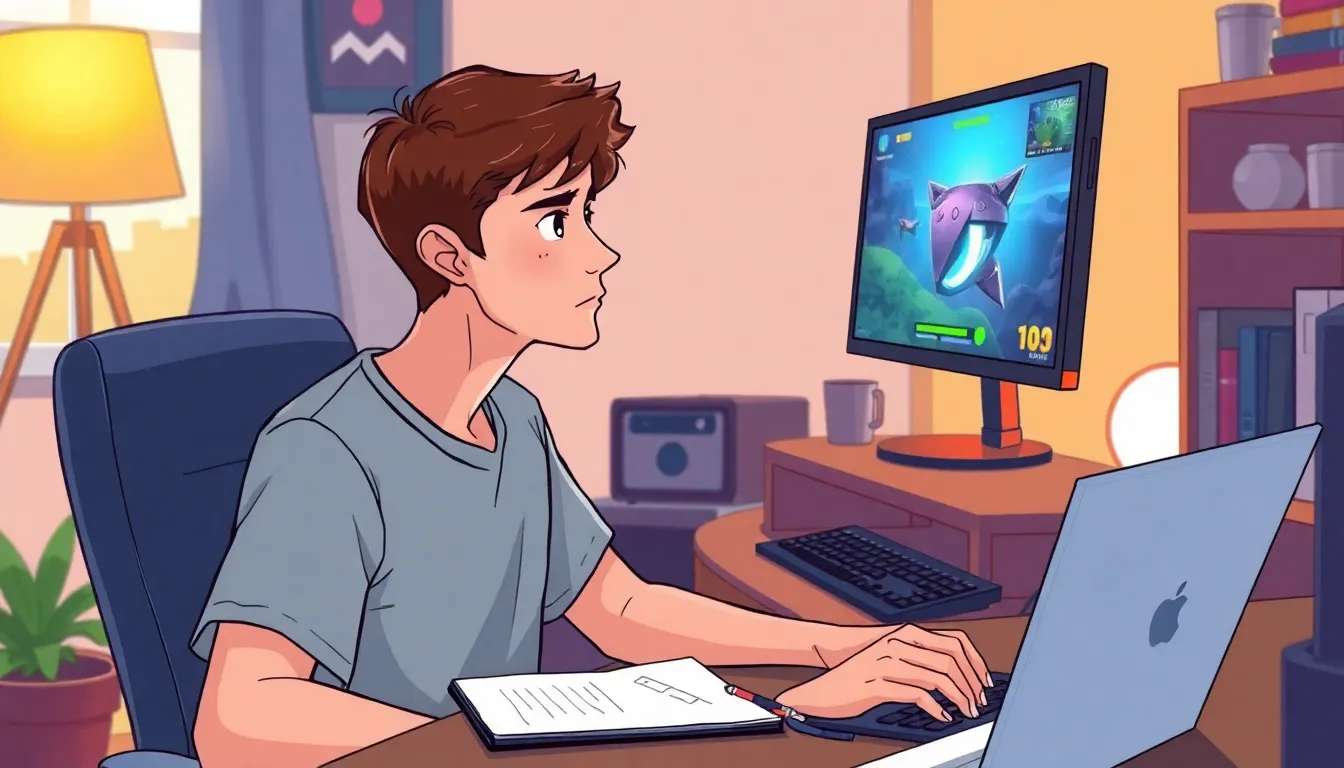In a world where gaming can feel like a second job, it’s easy to get sucked into the endless loop of Game Overdertoza. One minute you’re conquering virtual realms, and the next, you’re wondering if you’ve forgotten what sunlight looks like. It’s a slippery slope from casual player to full-blown addict, and many find themselves stuck in a never-ending cycle of respawns and retries.
Understanding Game Overdertoza Addiction
Game Overdertoza addiction involves excessive gaming that hampers daily life. It often starts as a casual pastime but quickly escalates into a compulsive behavior that dominates a player’s life.
What Is Game Overdertoza Addiction?
Game Overdertoza addiction refers to an overwhelming preoccupation with the game that disrupts normal functioning. Players may prioritize game objectives over personal responsibilities and relationships. This intense devotion leads to a significant loss of interest in other activities. Individuals frequently feel a constant urge to play, even during inappropriate times. Gradually, the game becomes a primary focus, overshadowing essential life aspects.
Signs and Symptoms of Addiction
Recognizing signs of Game Overdertoza addiction is vital for identifying the issue. Common symptoms include neglecting social obligations and personal hygiene. Players often experience irritability when unable to play, indicating dependence on gaming. Persistent lying about the amount of time spent gaming marks a significant red flag. Feelings of guilt or shame post-gaming are frequent. Individuals may also exhibit withdrawal symptoms, such as anxiety and depression, when not engaged in gameplay.
Identifying Triggers and Patterns

Understanding triggers and patterns plays a crucial role in overcoming Game Overdertoza addiction. Identifying these factors helps individuals recognize when they’re at risk of excessive gaming.
Common Triggers for Game Overdertoza Addiction
Stressful situations often prompt increased gaming. Isolation from others can lead to a need for escapism through gameplay. Boredom drives individuals toward gaming as a source of entertainment. Peer pressure from friends or social groups may also contribute to addictive behaviors. Additionally, personal achievements in the game can create a rewarding cycle that encourages prolonged engagement. Recognizing these common triggers provides insight into the circumstances that may lead to addiction.
How to Recognize Gaming Patterns
Tracking gameplay frequency can reveal concerning trends. Monitoring the amount of time spent on gaming each day helps highlight excessive usage. Noticing emotional responses tied to gaming, such as frustration or excitement, indicates the intensity of engagement. Observing changes in daily activities or responsibilities neglected due to gaming often signals a negative pattern. Finally, evaluating social interactions can uncover shifts in relationships due to prioritizing gaming over personal connections. Identifying these patterns allows for proactive steps toward healthier gaming habits.
Strategies to Overcome Addiction
Overcoming Game Overdertoza addiction requires focused strategies that can provide effective control over gaming habits. Implementing these strategies helps individuals reclaim their time and attention from gaming.
Setting Boundaries for Gaming
Establishing clear gaming limits proves crucial in managing gaming time. To begin, specifying daily limits, such as two hours of gameplay, helps regulate engagement. Additionally, designating specific days for gaming reduces impulsive play. Prioritizing social activities, such as family dinners or outings, encourages balanced lifestyles. Gamers can benefit from using timers or alarms to signal the end of a gaming session. Friends and family can play supportive roles by holding players accountable for their commitments. Recognizing signs of binge gaming, like neglecting personal tasks, aids in maintaining boundaries.
Finding Alternative Hobbies
Exploring alternative interests expands one’s activities beyond gaming. Incorporating physical activities, such as jogging or joining a sports team, promotes wellness. Engaging in creative pursuits, like painting or writing, fosters self-expression. Attending social events, such as local meet-ups, builds connections and reduces feelings of isolation. Learning new skills, such as cooking or playing an instrument, provides fulfilling distractions from gaming urges. Joining clubs focusing on shared interests allows individuals to meet like-minded people. Lastly, volunteering for local organizations nurtures a sense of purpose and community involvement.
Seeking Support
Finding adequate support is crucial in overcoming Game Overdertoza addiction. Encouragement from others enhances the recovery process, offering motivation to create healthier gaming habits.
Importance of Social Support
Social connections play a vital role in recovery. Friends and family provide accountability, helping individuals adhere to set boundaries. Sharing experiences with others can alleviate feelings of isolation that often accompany addiction. Engaging in group activities fosters a sense of belonging and can replace time spent gaming. Players can also connect with support groups centered on gaming addiction, providing a safe space to share challenges and strategies.
Professional Help and Counseling
Professional intervention can be beneficial in overcoming addiction. Counselors specializing in gaming addiction offer tailored strategies to manage behaviors. Therapy focuses on underlying emotional issues contributing to excessive gaming. A professional can assist in setting realistic goals and developing coping techniques. Many individuals find that structured therapy sessions provide the accountability necessary for lasting change. Prioritizing mental health through counseling often complements social support efforts, enhancing overall recovery success.
Maintaining Long-Term Recovery
Long-term recovery from Game Overdertoza addiction requires commitment and clear objectives. Establishing specific goals helps create a structured path toward healthier gaming habits.
Setting Goals for Your Recovery Journey
Setting realistic milestones plays a crucial role in recovery. Focus on creating measurable objectives, such as reducing gaming time by a certain number of hours each week. Break larger goals into smaller steps, making progress manageable. For example, if daily gaming exceeds five hours, aim to cut down to four during the first week. Tracking achievements helps maintain awareness of progress and reinforces motivation.
Tips for Staying Motivated
Staying motivated can become challenging during the recovery process. Building a supportive network provides encouragement, ensuring accountability from friends or family. Engaging in alternative activities, such as joining sports teams or attending community events, enhances social interactions. Keeping a journal to document progress offers a reflective outlet for feelings and achievements. Reminding oneself of personal goals strengthens the commitment to long-term change. Consistently celebrating small victories fosters a positive mindset and reinforces the journey toward recovery.
Overcoming Game Overdertoza addiction requires a proactive approach and a commitment to change. By recognizing triggers and patterns players can take significant steps toward healthier gaming habits. Setting clear boundaries and engaging in alternative activities can create a more balanced lifestyle.
Support from friends and family is crucial in this journey. They can provide accountability and encouragement while helping to alleviate feelings of isolation. Seeking professional help can also offer tailored strategies for managing addiction and addressing underlying emotional issues.
Ultimately, maintaining long-term recovery hinges on setting realistic goals and celebrating progress. With determination and the right support network, individuals can reclaim their time and focus on what truly matters in life beyond the screen.


